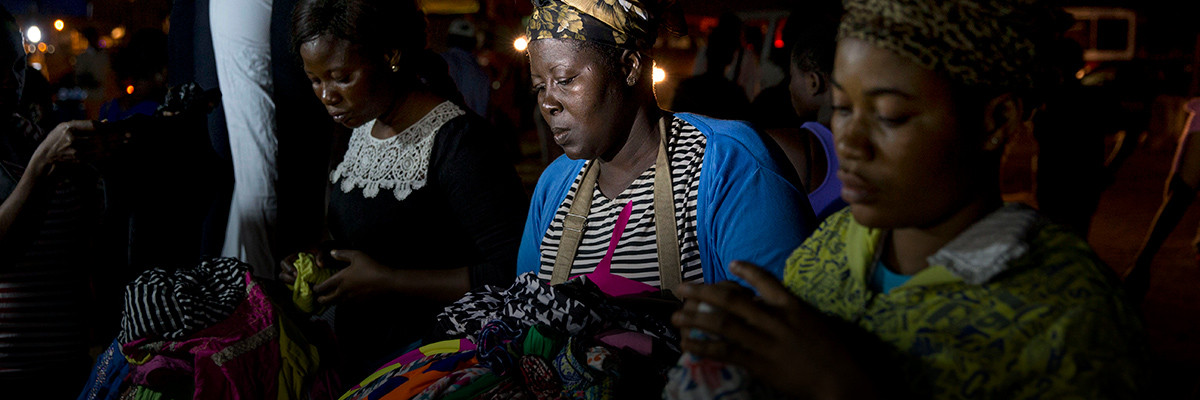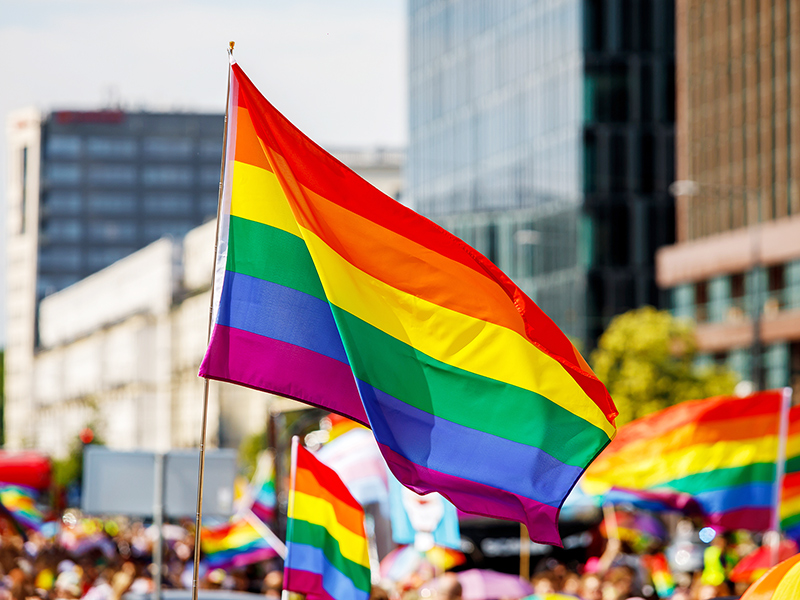
Photo credit: Jonathan Torgovnik/Reportage by Getty Images
Authors
-
Ouida Chichester
Former Director, Energy, Extractives, Transport, and Industrials, BSR
When conducting field research in Ghana for our report, “Women’s Economic Empowerment in Sub-Saharan Africa: Recommendations for Business Action,” and accompanying apparel industry brief, we met with a woman factory owner who told us that when she got started, she was very strict with her employees and didn’t want to get involved in their personal lives. This resulted in several business challenges, including high turnover rates. She eventually rethought her approach and focused on the needs of her women workers. She told us: “I’ve come to realize it isn’t about handing out money; it is about listening and providing guidance [or] a word of advice. Help[ing] them with how to take care of their children. It has really worked. They feel like there is someone who listens and cares. [It] makes a huge difference.” She now runs a one of the leading fashion houses in the country and has attracted the attention of international brands.
Thanks to favorable trade policies, a large youth population, and convenient access to European and U.S. markets, sub-Saharan Africa is increasingly becoming an attractive apparel sourcing destination. This presents apparel brands with a unique opportunity to play offense and proactively build an apparel manufacturing sector that prioritizes women’s economic empowerment in their expectations of suppliers—right from the start.
Although sub-Saharan Africa accounts for less than 1 percent of global clothing exports at the moment, many companies are starting to source from the region. Capitalizing on the region’s potential could transform national economies and create millions of formal job opportunities, particularly for women. However, if safeguards and investments to protect and empower workers are not established, the industry could present significant risks to workers’ health, rights, and well-being.
In the aftermath of the Rana Plaza factory disaster in Bangladesh nearly four years ago, the apparel industry has been rethinking its own approach and has begun to implement reforms in sourcing policies and in engagement approaches with the factories and workers in supply chains. As apparel manufacturing expands in countries like Ethiopia, Kenya, Tanzania, and Uganda, it is important that brands, factories, and governments apply lessons learned—especially in Asia—to ensure that human rights, safe working conditions, and women’s empowerment are priorities. An approach that goes well beyond growth at all costs will have positive long-term impacts on workers, the environment, communities, and the wider economy.
Our research found that women face many of the same challenges in sub-Saharan Africa that they do in Asia, including poor working conditions, high turnover, and weak infrastructure. And like other women in the sector globally, women in sub-Saharan Africa—who make up the majority of garment factory workers in the region—face risks of sexual abuse and harassment, few career-growth opportunities, and limited access to basic services. These findings reinforce the need for brands to work with suppliers to prioritize labor rights, reduce workplace risks, provide clear career pathways, and strengthen access to quality childcare and healthcare.
Our report offers recommendations on how apparel brands can advance women’s economic empowerment, including the following actions:
- Build inclusive supply chains through responsible sourcing practices, promoting positive relationships with suppliers, and incentivizing suppliers to advance women’s economic empowerment. Brands can also participate in industrywide efforts that advocate for and share best practices on these responsible, inclusive approaches.
- Create gender-sensitive workplaces where women’s concerns are addressed and workers have access to feedback channels that create spaces for women’s voices to be heard by management and improve worker-management relations.
- Invest in education and training programs for workers that build basic literacy and education, as well as job and life skills. Brands can support factories’ involvement in Better Work, Ethical Apparel Africa, and BSR’s HERproject.
- Prevent sexual harassment and ensure proper remediation if it occurs by communicating and enforcing no-tolerance policies, helping factories establish anonymous reporting mechanisms, and working with factories and community partners to provide referrals to counseling services.
- Build inclusive communities by partnering with local and global organizations to improve women’s access to essential products and services, create an enabling environment for women, and address cultural barriers that hold women back.
There is an opportunity for brands to embed responsible business practices into their engagements from the beginning, which will help prevent challenges that have plagued other regions and establish sub-Saharan Africa as a responsible sourcing destination. This will not happen, however, without brands making a concerted effort not to repeat the mistakes of the past.
BSR’s latest sustainability insights and events straight to your inbox.
Topics
Let’s talk about how BSR can help you to transform your business and achieve your sustainability goals.







